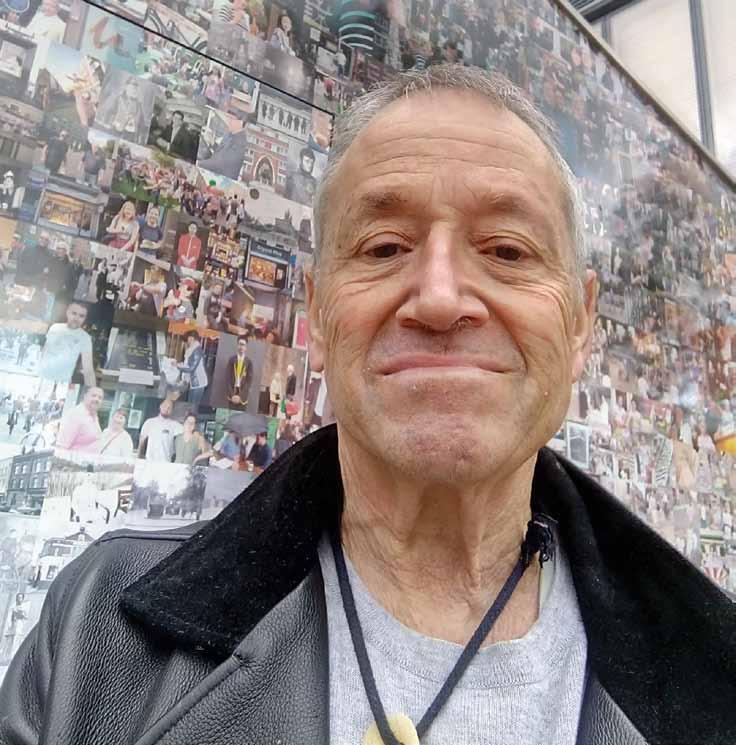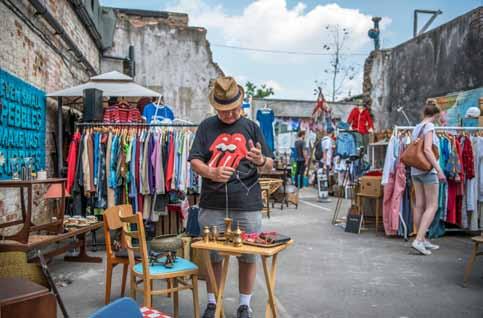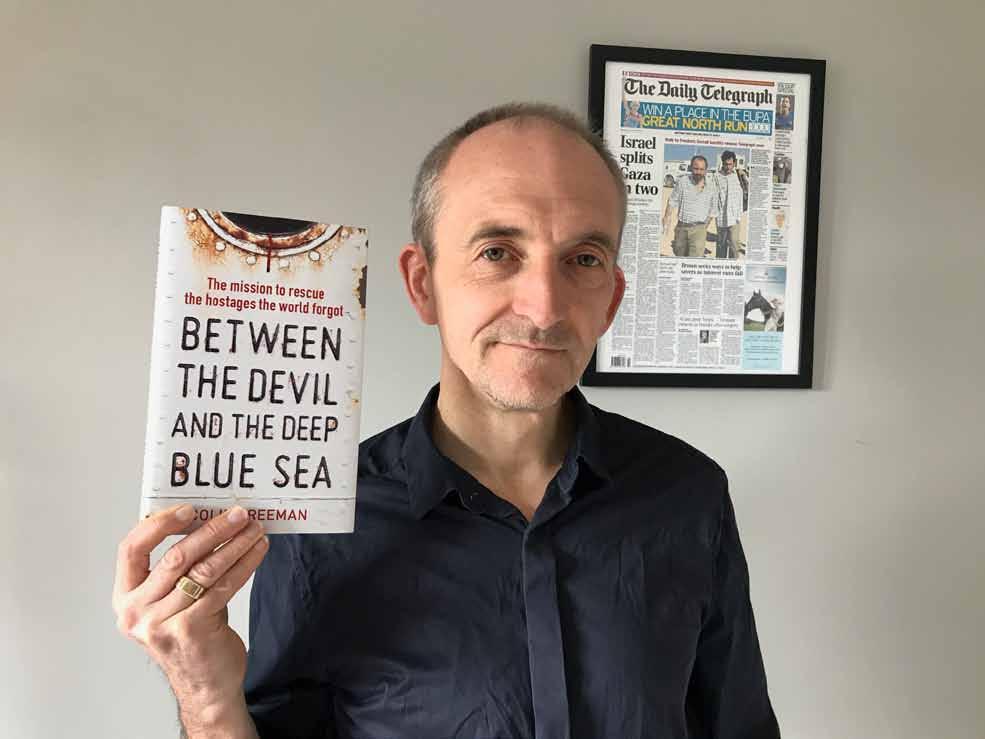may 2021
C
“There I was, being corrected on my knowledge of the Premier League transfer market by a man with a gun in a Somalian cave...” ―
olin Freeman and I have been talking for ten minutes when we get to what happened in Iraq. “The thing is - when you get shot in the arse, it's different to being shot somewhere glamorous like the arm or leg,” he muses. “People just think it’s funny you got hit in the bum. Even my mum.” Is it polite to laugh about the punctured posterior of someone you’ve just met? Let’s hope so. Speaking to Freeman is like chatting with your favourite wayward uncle - one prone to jetting off somewhere unspeakably dangerous on a whim. The affable journalist and I are supposed to be discussing his latest book, Between the Devil and the Deep Blue Sea. But swashbuckling stories from Freeman’s career come thick and fast - “I met an ex-tank commander driving a battered 1981 Nissan, noticed he spoke good English and hired him on the spot” - told with the rollocking charm of one of life’s eternal optimists. It’s like phoning Prince Phillip, God rest him, if HRH a) lived in Dulwich, b) once got kidnapped by his own bodyguards, and c) hadn’t just died. You can feel sheer life radiating from the Sunday Telegraph’s former chief foreign correspondent. And what a life it’s been. Originally from Scotland,
Cara Cummings meets the daredevil foreign correspondent from Dulwich.
10
Freeman was working for the London Evening Standard when the Iraq war broke out in 2003. “I thought - this is the biggest story of my generation, and I’m going to be stuck at home writing about roadworks,” Freeman remembers. “A colleague said, ‘Why don't you go and cover the war as a freelancer?’ I knew nothing about the Middle East, didn't speak Arabic and had no contacts - but that's what I did. Somehow, against the odds, it worked out.” Although it very nearly didn’t. “I arrived in Iraq on the day the war ended, which isn’t great as a budding war reporter,” he deadpans. But Freeman landed at the right time - as most correspondents left, the rambunctious Scot was on the ground as the US-led military occupation unravelled. “You could see the insurgency beginning to grow,” he recalls. “Barely a day went by without an assasination, or a car bombing. One half wrecked my hotel. I remember it was so cheap, the US military came to see if any bombers had stayed there as their last port of call!” he chuckles. In fact, Freeman speaks so warmly of Iraq that the episode feels like a boisterous holiday camp, just with guns. Which brings us to that moment





